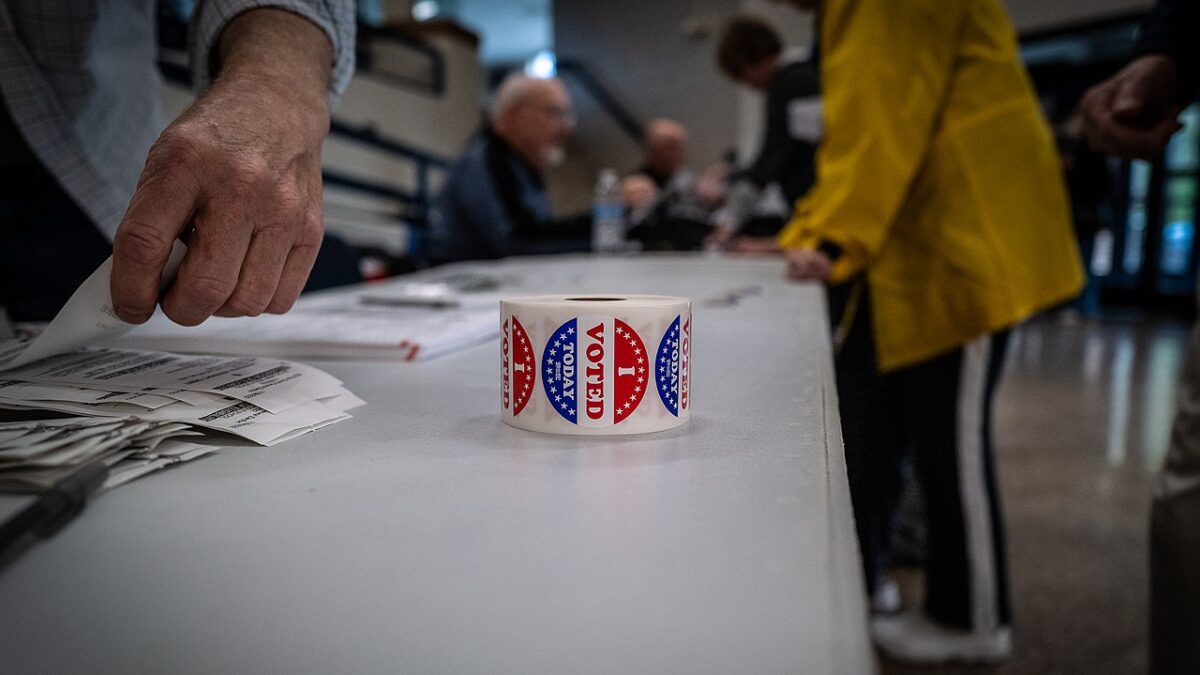Three of the 10 counties chosen as beneficiaries of a program from the nonprofit that helped fund the private takeover of government election offices in 2020 are refusing to accept those dollars leading up to the 2024 cycle.
Election officials from Brunswick and Forsyth Counties in North Carolina and Ottawa County in Michigan have chosen not to accept funds from the U.S. Alliance for Election Excellence, a program that plans to funnel $80 million in election grants to jurisdictions across the country over the next five years. The alliance is a project of the Center for Tech and Civic Life, one of two groups that funneled over $328 million of private money from Facebook CEO Mark Zuckerberg, known as “Zuckbucks,” to government election offices mostly in the blue counties of swing states, mobilizing Democratic get-out-the-vote efforts and swinging the race in Joe Biden’s favor.
Many of the jurisdictions chosen as recipients for the 2024 cycle lean heavily Democrat and are located in swing states, indicating CTCL is hoping to replicate its successful scheme in the next presidential election in purple states Democrats need to win, such as Michigan, Nevada, Wisconsin, and North Carolina. While CTCL might once again try to hide its efforts by claiming the alliance is also giving money to red counties, expect more than double or triple the funds to be spent on Democratic-leaning counties compared to Republican ones, just like in 2020.
Ottawa County Clerk Justin Roebuck told RealClearInvestigations he will refuse the grant money offered to his county because of transparency concerns. When Roebuck asked the alliance about its criteria for the amount of money given to each county, those running the program refused to give a clear answer.
Tim Tsujii, director of elections for the Forsyth County Board of Elections, told RealClear that Forsyth will not take any grant money because the county has adequate funds to administer its elections. Forsyth and Brunswick Counties will still be part of the alliance, but Tsujii raised concerns about members having to pay a fee for being part of the program.
“There is all this talk about the money going to elections offices and the counties, but what about the money going from the counties to the alliance?” Tsujii said.
To be a part of the alliance, election offices must pay an annual fee, $1,600 for a basic membership or $4,800 for premium, which the CTCL-created program says gives officials access to “coaching,” tutorials, consulting, and any other as-needed hand-holding, such as revamping voter forms and websites. The alliance also obligates members “to make non-monetary (but highly significant) contributions to the broader activities of the Alliance,” such as participating in its events and sharing election data, documents, and forms.
While the program goes to great lengths to stress its “commitment to nonpartisanship” — “We will never attempt to influence the outcome of any election. Period” — its own founding organization, the Center for Tech and Civic Life, has demonstrated the catastrophic and deeply partisan consequences of welcoming outside groups to infiltrate government election offices.
These three jurisdictions are not the only beneficiaries raising concerns about the integrity of the alliance and the problems associated with accepting its funds. The town of Greenwich, Connecticut, narrowly approved a $500,000 grant from the program after town representatives and concerned residents wrote a letter to their local newspaper signaling their opposition to accepting the grant. The letter cited outside influence by the partisan groups in Greenwich’s election process as one reason to reject the funds.
As RealClearInvestigations noted:
When [Greenwich] residents heard that its elections office was tapped to receive $500,000 in grant money from the CTCL, a member of the town’s legislative council sent an email to the center seeking more information, including audits of the group’s books, a copy of the group’s annual report, and its conflict-of-interest policy.
The CTCL declined to provide the documents, insisting that its audited financials and conflict policies “are not publicly filed documents.”
The alliance has also failed to disclose how exactly the grant money will be used, instead keeping things vague and saying it will vary depending on each office. But if CTCL’s past is prologue, that could mean working with left-wing third-party groups to create absentee ballot forms, targeting likely-Democratic voters by harvesting and curing their ballots, and crafting automatic voter registration systems. The Center for Tech and Civic Life is already hoping to do this on a much broader scale than in 2020. As The Federalist previously reported, CTCL has an elaborate plan to infiltrate more than 8,000 local election departments across the country by 2026.
That county election officials and town leaders are suspicious of the alliance and are starting to opt out of its grant money should set off alarm bells for other jurisdictions committed to conducting free and fair elections. Unless more localities reject these private funds and memberships, CTCL — under the guise of its new U.S. Alliance for Election Excellence program — will once again undermine election integrity in 2024 and beyond.







